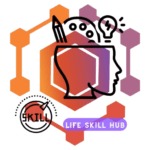Table of Contents
ToggleThe sales funnel concept is a model used in marketing and sales that illustrates the journey a potential customer takes from initial awareness of a product or service to making a purchase. It’s a visualization of the buyer’s journey, representing the various stages they go through before converting into a customer. Here’s a brief overview of the key stages within the sales funnel:
1. Awareness Stage:
- Top of the Funnel (TOFU): At this stage, potential customers become aware of your brand, product, or service. They might discover you through social media, online content, advertisements, or word-of-mouth referrals.
2. Interest and Consideration Stage:
- Middle of the Funnel (MOFU): Once aware, prospects move to the consideration phase. Here, they show interest and actively seek more information. They might engage with your content, sign up for newsletters, or compare your offerings with competitors’.
3. Decision Stage:
- Bottom of the Funnel (BOFU): In this stage, prospects are close to making a purchase decision. They’ve researched and evaluated options, and now they’re looking for that final nudge. This is where discounts, free trials, or personalized messages can be influential.
4. Action Stage:
- Conversion: The action stage is where the prospect becomes a customer by making a purchase or taking the desired action, such as signing up for a service, downloading an app, or completing a transaction.
5. Retention and Advocacy Stage:
- Post-Purchase: The funnel doesn’t end at the purchase. Building customer loyalty and turning them into advocates is crucial. Providing excellent customer service, engaging content, and loyalty programs can encourage repeat purchases and referrals.
Importance of the Sales Funnel:
- Guiding Marketing Strategies: Understanding where potential customers are in the funnel helps tailor marketing strategies and content to their needs at each stage.
- Optimizing Conversion Rates: By identifying where prospects drop off or lose interest in the funnel, businesses can optimize strategies to improve conversion rates.
- Enhancing Customer Relationships: The funnel isn’t just about making a sale; it’s about building long-term relationships by providing value and support.
Adaptability and Continuous Improvement:
- The sales funnel isn’t linear; prospects can enter at different stages or loop back due to various reasons. Continuous analysis, testing, and refinement are essential for adapting to changing consumer behaviors and preferences.
Conclusion:
Understanding the sales funnel helps businesses comprehend the customer journey and tailor their strategies to meet customers’ needs at different stages. It’s a framework that guides marketers and sales teams in effectively nurturing leads, converting prospects, and fostering lasting relationships with customers.
